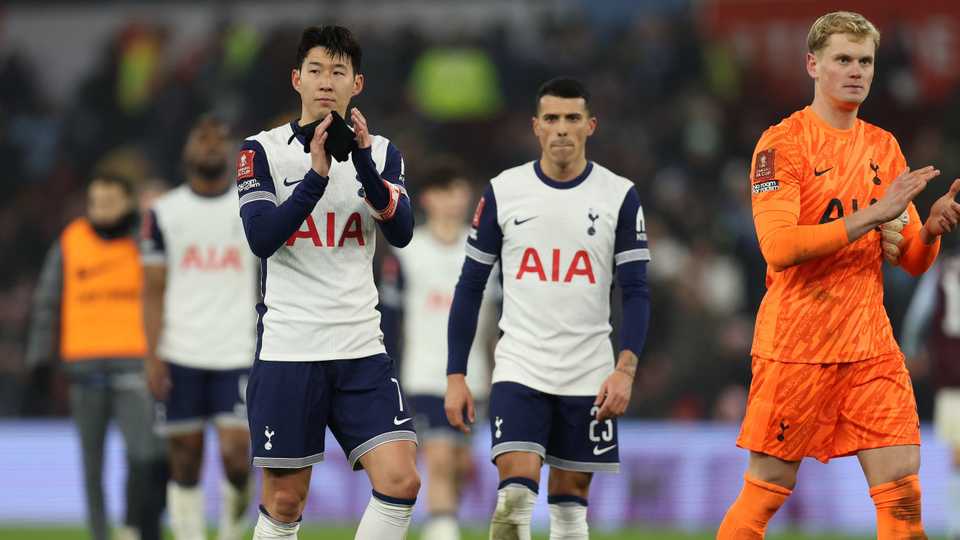The winds of change are sweeping through North London as Tottenham Hotspur prepare for life without their iconic captain Heung-min Son, while simultaneously making strategic decisions about their brightest young prospects.
The South Korean superstar’s emotional farewell marks the end of an era at Spurs, coinciding with emerging talent Jamie Donley’s impending loan move to the Championship – two transitions that symbolize the club’s evolving identity under Thomas Frank’s leadership.
Son’s departure after a decade of service represents more than just a roster change; it’s the closing of a defining chapter in Tottenham’s modern history.
The 32-year-old’s candid admission about needing “a new environment” after 10 years reflects both personal ambition and professional honesty from a player who grew from promising youngster to global superstar in Lilywhite.

His journey – arriving as a 23-year-old who “didn’t speak English” and departing as a Europa League-winning captain – embodies the club’s recent trajectory under multiple managers and ownership structures.
The emotional weight of Son’s exit cannot be overstated. His 173 goals and 101 assists in 454 appearances tell only part of the story – it was his relentless work ethic, durability, and big-game contributions that cemented his legendary status.
Last season’s Europa League triumph provided the fairytale ending his Tottenham career deserved, though his absence will undoubtedly leave a void both on the pitch and in the dressing room.
As the club assists their departing captain with his transition, attention turns to how Frank will redistribute leadership responsibilities and attacking output across his revamped squad.
Parallel to this high-profile departure runs the carefully managed development of 20-year-old Jamie Donley, whose loan move to an unnamed Championship club represents the next logical step in his progression.
The attacking midfielder’s impressive spell with Leyton Orient last season – capped by a stunning FA Cup goal against Manchester City – demonstrated readiness for tougher challenges.
Donley’s technical quality and composure in possession saw him feature in parts of Tottenham’s pre-season tour of South Korea, but the club’s hierarchy believes regular Championship minutes will accelerate his growth more effectively than sporadic Premier League appearances.
Leyton Orient manager Richie Wellens’ effusive praise for Donley during his League One loan (“an exceptional player at this level who will go on to bigger and better things”) underscores why Tottenham rate him so highly.
The Championship move allows Donley to test himself against more physical, tactically disciplined opponents while continuing to train at a level that should prepare him for first-team contention in 2026.
This loan strategy mirrors Tottenham’s successful development of Oliver Skipp, who used Championship experience with Norwich to become a Premier League-ready midfielder.
These simultaneous transitions reveal Tottenham’s multifaceted approach to squad building under Frank. While Son’s departure necessitates an immediate high-caliber replacement (with links to players like Jack Grealish and Mohammed Kudus), Donley’s loan exemplifies the patient cultivation of homegrown talent.

The club appears committed to balancing short-term competitiveness with long-term planning – a delicate equilibrium that top clubs must maintain in the modern transfer market.
Financially, Son’s exit could free up significant wage resources for reinvestment, while Donley’s development path reflects Tottenham’s commitment to maximizing their academy output.
The contrast between these two moves – one marking the end of a glorious tenure, the other nurturing potential future stars – encapsulates the cyclical nature of football squads.
As Tottenham prepare for their Premier League opener, Frank faces the dual challenge of replacing Son’s leadership while ensuring the club’s promising youngsters like Donley receive appropriate development opportunities.
The weeks ahead will reveal whether Spurs can adequately fill the void left by their legendary captain, but the structured approach to Donley’s progression offers hope that the club’s future remains bright even as its recent past moves on.
For supporters, this period represents both nostalgia for what was and anticipation for what’s to come.
Son’s legacy as one of Tottenham’s greatest ever players is secure, while Donley’s potential emergence could signal the dawn of a new generation.
In the high-stakes world of Premier League football, such transitions are inevitable – but rarely handled with such apparent strategic clarity as Spurs are currently demonstrating.
